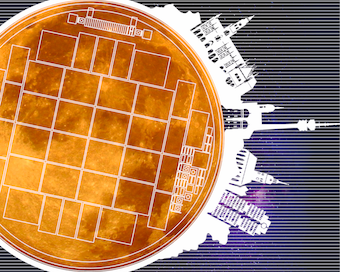Speaker
Description
The MoVeIT project of the INFN-CSN5 aims at studying, modeling and verifying the biological impact on charged particle therapy of some complex physical and biological effects, so far neglected in treatment planning systems (TPS) currently used. The preclinical testing of biologically optimized TPS requires dedicated devices for its validation, able to analyze beam particle fluences and beam energy at the same time. The work-package 4 of the MoVeIT project is investigating the use of low-gain avalanche detectors (LGAD) optimized for time resolution (Ultra Fast Silicon Detectors - UFSDs) for proton beam monitoring. Two prototype devices are being developed, one to directly count individual protons at high rates (hundreds of MHz/cm$^{2}$), the second to measure beam energy with time-of-flight techniques. This requires the design of custom UFSD sensors as well VLSI readout electronics. From simulations’ results and first beam tests with UFSD pads, strip detectors were produced by FBK in Trento, with two geometries (30 mm and 15 mm length) and different doping modalities to improve radiation hardness. Radiation damage, in fact, represents the main issue to be investigated, together with pileup effects. In parallel, prototypes of a new TERA10 readout chip have been submitted to the foundry. The aim of this contribution is to review the advancement of the project and to report on the results of the tests of UFSD strip sensors with the therapeutic proton beam of CNAO (Pavia).
